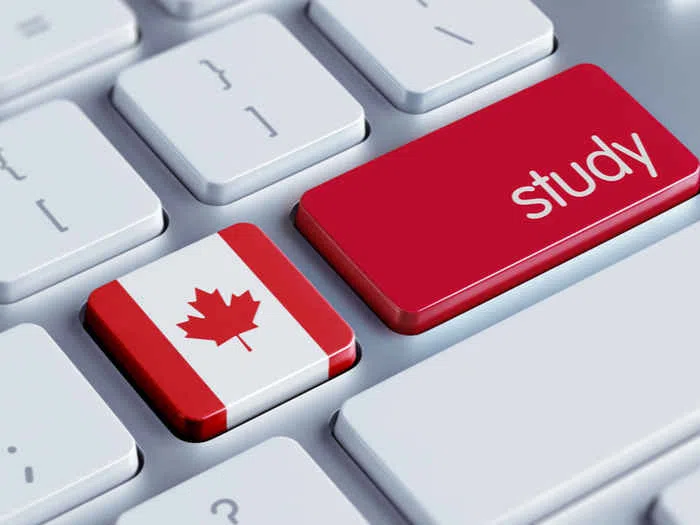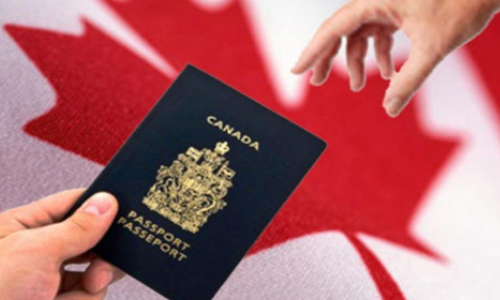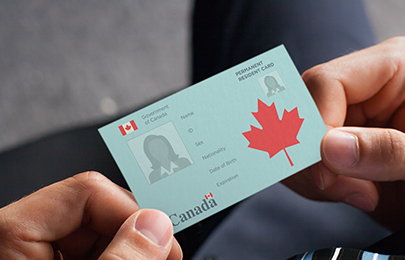2025 Canadian Study Abroad Guide: Policies, Applications, Fees And Entry Instructions
2025 Canadian Study Abroad Guide: Policies, Applications, Fees And Entry Instructions
With its high-quality educational resources, diverse cultural environment and relatively relaxed immigration policies, Canada has become one of the most favored study abroad destinations for Chinese students. This article will introduce you in detail the complete process of studying in Canada in 2025
How to study in Canada? Complete Guide from Application to Entry
With its excellent education system, rich cultural atmosphere and flexible immigration regulations, Canada has attracted many Chinese students to use it as the first choice for studying abroad. This article will comprehensively explain the entire process of studying in Canada in 2025, covering policy adjustments, admission requirements, expense estimates and entry guidance, aiming to help you plan your study abroad journey smoothly.

Photo source photo network
New changes in Canadian study abroad policy in 2025
In 2025, Canada's study abroad policy has undergone significant changes, which are mainly reflected in the following key points:
The amount of study permits issued in 2025 will be reduced, specifically 437,000, a 10% decrease compared to 2024, which means that competition will become more severe.
The mandatory provisions of provincial certificate letters (PAL/TAL) are as follows: Except for students in the K-12 stage, applicants for college, undergraduate and graduate students must provide provincial certificate letters, and there are large differences in quota allocations in each province.
Graduate students are included in quota control: Previously exempted graduate programs are also strictly restricted
Student-specific ways: specially set up convenient visa services for Chinese students, and the approval procedures can be completed within 20 days as soon as possible.
Application requirements for studying in Canada
Education and grade requirements
The application conditions for undergraduate degree are strict. Applicants must submit a record of three years of high school, and their average score must be above 80 points. In addition, for some top universities such as the University of Toronto, the requirements that the college entrance examination score must exceed the first batch of undergraduate admission scores.
To apply for a master's degree, you must have a four-year undergraduate diploma, and the average score (GPA) should reach 3.0 or higher, with a full score of 4.0; in addition, the applicant's professional background should be closely matched with the applied research direction.
Language Proficiency Requirements
Undergraduate: IELTS 6.5 (single ≥6) or TOEFL 90 (single ≥20)
Master: IELTS 7.0 (single ≥6.5) or TOEFL 100 (single ≥22)
Those who fail to meet the standards can choose the "language major" dual admission method
Funding proof requirements
Undergraduate: It is recommended to prepare a deposit certificate of RMB 600,000-800,000.
Master’s degree: RMB 400,000-500,000, you can apply for a teaching assistantship for research master’s degree
Deposits must reflect 12 months of historical records to avoid temporary large deposits
Application process for studying abroad in Canada
1. Preliminary planning and school selection (it is recommended to prepare 1 year in advance)
Professional selection: Priority to scarce areas such as STEM (computer, engineering), medical and health
In terms of school selection, we intend to avoid the highly competitive Ontario and British Columbia and instead consider places such as Manitoba, where the admissions quotas are relatively loose.
Policy adaptation: Confirm the remaining quota of the school visa of the target colleges and provinces
2. Material preparation (6 months before application)
Academic materials: Chinese and English transcripts, graduation certificates/certificates of enrollment (notarized required)
Relevant documents include: personal statements (focusing on professional relevance and career development direction), and 2 to 3 letters of recommendation.
Other materials: Notarization of no criminal record, physical examination report (valid for 6 months)
3. Application Submission and Follow-up
Submit materials through the school’s official website or provincial application system (such as OUAC)
Pay application fee (approximately 100-200 Canadian dollars/school)
Regularly check the application status and submit the language score and other materials
4. Application for study permit (after admission)
An admission letter must be provided, and a provincial certificate (PAL/TAL) is also indispensable. The GIC certificate must display a living expenses deposit of CAD 10,000. At the same time, a detailed study plan must also be submitted.
Submit the application online through the IRCC official website and pay a CAD 150 application fee; then make an appointment for fingerprint collection (the biometric fee is CAD 85); finally enter the approval stage, and the waiting time is about 3 to 4 months according to the standard process.
Canadian study abroad budget
During the one-year study in Canada, the overall expenses are about 150,000 to 350,000 yuan, which covers tuition and living expenses. The specific cost depends on factors such as the type of school, the difference in majors studied, and the consumption level of the city where the city is located, and there are major differences.
Tuition fee composition
Undergraduate: 16,000-22,000 Canadian dollars per year
Master’s degree: 20,000-50,000 CAD per year
Special majors: For example, MBA can reach more than 50,000 Canadian dollars (about 250,000 RMB)
living expenses
On-campus accommodation costs about 600 to 1,000 CAD per month; if you choose to share an apartment with others, the cost is about 500 to 800 CAD per month.
Diet: about 300-500 Canadian dollars per month
Medical insurance: Annual cost starts at around $756
Canadian students' entry process
1. Pre-travel preparation phase
Apply for a study permit, and once approved, you need to bring an incoming letter.
Submit travel information through the app
Prepare passport (including valid visa), school admission notice, funding certificate and other materials
2. Entry declaration and Immigration Bureau review
After arriving at the Canadian airport, use a self-service declaration machine (Kiosk) to scan your passport
Show materials at the Immigration Bureau (CBSA) window and answer questions from the Immigration Officer
Obtain a study permit after approval (Study)
3. Must do things after entry
Apply for a Social Insurance Number (SIN): You can apply for online or via study permit
Health insurance: Medical insurance in public institutions is usually included in tuition fees
Bank account opening and mobile phone card: It is recommended to apply for local bank accounts and mobile phone cards as soon as possible
Studying in Canada is regarded as a major investment in life. As long as you plan carefully and be fully prepared, you are expected to receive an ideal admission notice in 2025. It is recommended that you continue to pay attention to policy changes on the official website of the Canadian Ministry of Immigration, Refugees and Citizenship (IRCC), and adjust your application strategy in a timely manner according to your actual situation. If you need more in-depth and targeted advice, you may wish to consult Huanxing Study Abroad to get the help you need.
Studying abroad is regarded as an investment behavior. So, is your education funding sufficient? Just follow three easy steps and you can easily grasp the cost of studying abroad.
Cost calculation
I want to study abroad, but I don’t know if I meet the requirements? Test it now?
Conditional Assessment





